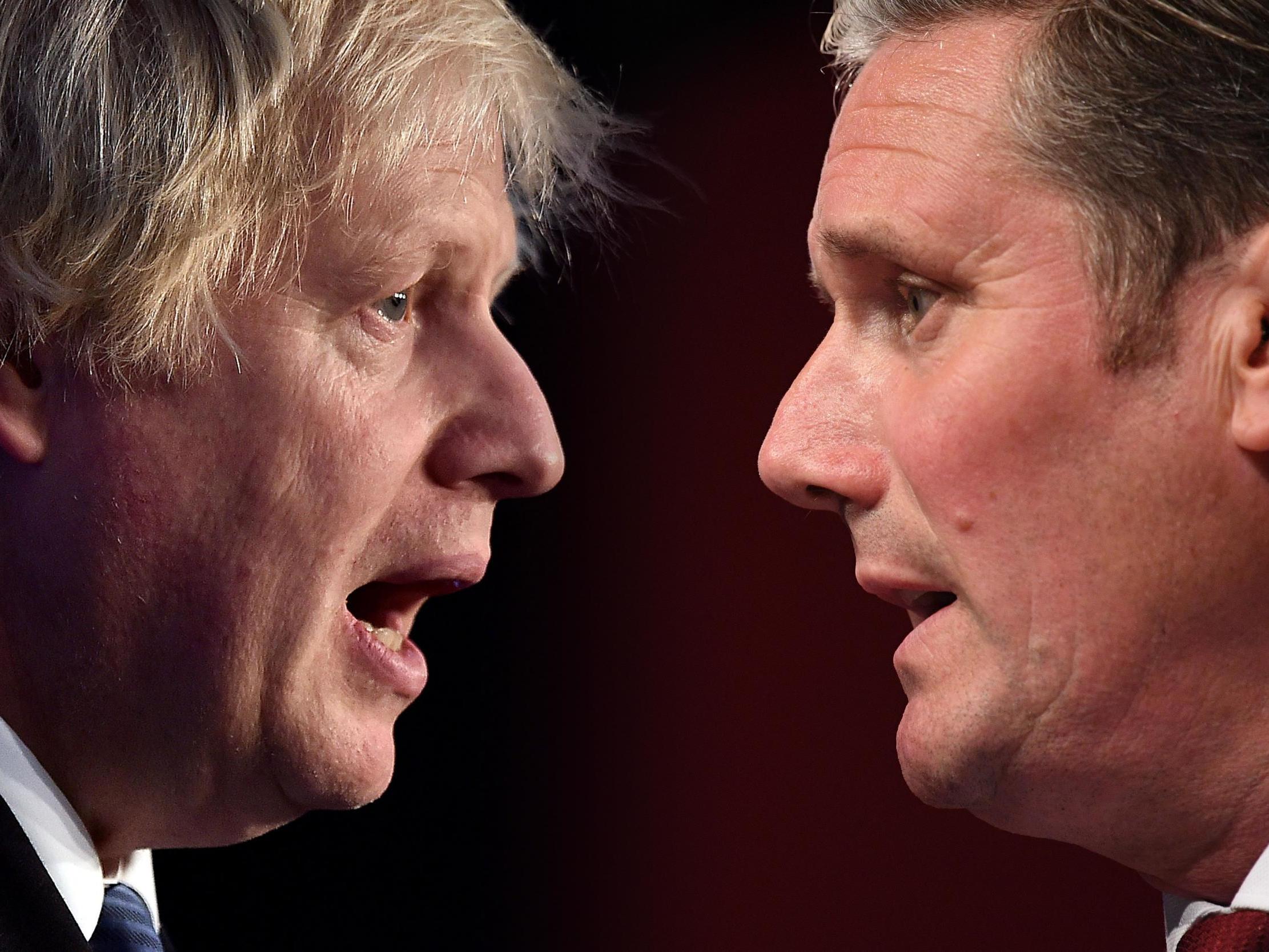Child poverty is a serious subject – Keir Starmer is right to expose Boris Johnson’s ‘dodgy’ statistics
The party leaders clashed on the government’s record on inequality yesterday, writes John Rentoul. Here are the facts


Keir Starmer asked about child poverty at Prime Minister’s Questions a week ago, quoting the Social Mobility Commission, whose report had been published that morning. It said there are now 600,000 more children in relative poverty than in 2012, and that the total number is forecast to rise to 5.2m in 2022.
These are selective figures. The rise in the number of children in poverty since the last year of the Labour government is actually half as much, 300,000; and the forecast of a further rise of 1m to 5.2m was made three years ago.
It is reasonable to assume that the outlook for child poverty is bad, but quoting a three-year-old forecast made under a different government long before the coronavirus struck is no way to do it.
Boris Johnson would have been entitled to say something bland, pointing out that the government had increased universal credit payments during the coronavirus crisis. Instead, he tried to remember some facts and figures: “Absolute poverty and relative poverty have both declined under this government and there are hundreds of thousands – I think 400,000 – fewer families living in poverty now than there were in 2010.”
Of those three facts, one is true. Absolute poverty has indeed declined since 2009/10. The reduction is about 200,000 individuals (not “families”), while relative poverty has increased by about 900,000 individuals, after housing costs.
When Starmer challenged Johnson to “correct the record” at Prime Minister’s Questions yesterday, the prime minister dodged the question, as Starmer predicted he would, and came up with some new numbers, which he took the care to read out, rather than try to remember: “I am happy to point out to m’learned friend that actually, there are 100,000 fewer children in absolute poverty and 500,000 fewer children falling below thresholds of low income and material deprivation.”
Even these carefully compiled and scrupulously recited figures turn out to be “dodgy” – another word Starmer used. The 100,000 figure is correct, although no government, Labour or Conservative, has accepted absolute poverty as the right measure of policy, as I will explain in a moment.
The 500,000 figure, however, is no good. It is taken from a series produced by the Department of Work and Pensions called, as Johnson correctly read out, “children falling below thresholds of low income and material deprivation”, and is the difference between 2m in 2010/11 and the most recent figure, 1.5m. But the methodology changed in 2010/11, and 2m is the figure using the old method. The government’s own tables say: “Figures from the old and new suite of questions are not comparable.” The figure for 2010/11 using the new suite of questions is 1.7m, so there has in fact been a reduction of 200,000.
So where does that leave us? These were curious exchanges, last week and this week, based on information about the pre-coronavirus world, just because the Social Mobility Commission – a government body set up by Gordon Brown but endorsed by David Cameron and Theresa May – had put out some reheated figures.
Johnson could have said that the latest numbers are for 2018/19, before he became prime minister, and that the important question is how best to protect children from hardship during the economic crisis of the next few years.
Instead, he got his facts wrong and, in trying to correct himself this week managed to sound as if he was defending an “absolute” standard of poverty. This takes the Conservative Party back to the Victorian attitudes towards the poor last seen in Margaret Thatcher: the idea that if the poor have enough to feed, clothe and house themselves, it doesn’t matter how rich the rest of society becomes.
Leaving aside the modern resurgence of actual hunger and rough sleeping, this is no way for a compassionate society to measure deprivation. The way to measure poverty is in relation to the average, so that the poor do not get left so far behind that they feel shut out of society. On that measure (and to the nearest 100,000), 900,000 more people, 300,000 of them children, found themselves in relative poverty under the Conservatives.
It is a disappointing record for a party that is trying to reinvent itself as concerned with social justice. Johnson is only the latest in a short line of Tory leaders trying on the mantle of anti-poverty campaigner. By resorting to such “dodgy” numbers, he seems to have given up before he has even started.



Join our commenting forum
Join thought-provoking conversations, follow other Independent readers and see their replies
Comments